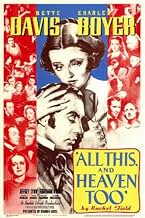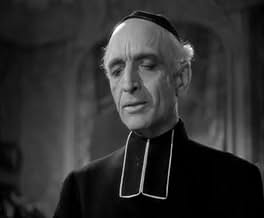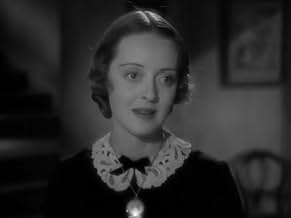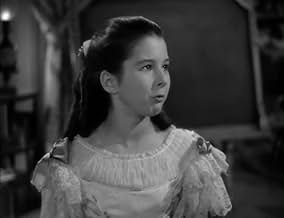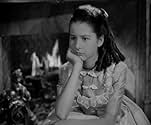Füge eine Handlung in deiner Sprache hinzuA duchess' irrational behavior toward her children's governess triggers tragic events that will change her family's lives forever.A duchess' irrational behavior toward her children's governess triggers tragic events that will change her family's lives forever.A duchess' irrational behavior toward her children's governess triggers tragic events that will change her family's lives forever.
- Regie
- Drehbuch
- Hauptbesetzung
- Für 3 Oscars nominiert
- 3 Gewinne & 3 Nominierungen insgesamt
- Berthe de Praslin
- (as Ann Todd)
Empfohlene Bewertungen
Davis is a kick to watch as she struts her stuff with an excellent French accent. Boyer is awesome in this dark, brooding, but romantic role. And O'Neil deservedly got an Oscar-nomination for her role, full of anger and energy. But the real stand-out, interestingly enough, is Richard Nicols as Boyer's so-adorable-you-just-wanna-squeeze-him son Reynald.
Overall, this dark, dreary film is a highly-satisfying experience, slightly off-put by the preachy, silly final scene in the classroom.
The film, except for the pro-Deluzy-Desportes slant, is excellent with a fine, restrained performance by Davis, an intense one by Boyer (who finally explodes in one scene where he shows his thorough hatred for his wife), and a marvelous performance by Barbara O'Neill as Fanny. I would thoroughly recommend this one for movie fans - a fine example of the best of Warner's historical films.
You genuinely feel like these screen children love her. And, given the time period, you feel like Boyer does to.
This is a rather long film, but the direction is solid and it just keeps moving along.
The script is really solid as well. There is little wasted time. Everything clips along rather nicely and I was surprised at how I fell under the spell of this film...
Wusstest du schon
- WissenswertesJune Lockhart's first credited role (and second film). In addition, out of the four children starring in the movie, she was the only one to continue acting into adulthood.
- PatzerThe Duchess of Praslin is seen licking envelopes in which she has placed letters to her husband, the Duc de Praslin. This film is set in the 1840s; gummed envelopes would not be invented for another 100 years. Correspondence in the 1840s would not be placed in a #10 business envelope either, as seen in the film. The letters would be placed in another sheet of paper and then sealed over with a wax seal or simply folded over and sealed with a wax seal, and sometimes a ribbon would be set in the wax as well.
- Zitate
Duc de Praslin: Why are you smiling? May I share whatever pleases you so?
Henriette Deluzy-Desportes: You will think I am very silly, I'm afraid, but standing here like this with the snow falling reminds of something I used to know. Do you remember a little round glass globe that...
Duc de Praslin: Oh yes, I know, with a snow scene inside. We had a paperweight on a desk at home like that. You shook it and the snow whirled around out from nowhere in a blinding storm.
Henriette Deluzy-Desportes: Yes, that's exactly what I mean.
Duc de Praslin: And if you looked closely enough the whole world seemed to be obliberated and shut out.
- VerbindungenFeatured in Salut für ...: Salut für Bette Davis (1977)
- SoundtracksThe War of the Roses
(uncredited)
Music by M.K. Jerome
Lyrics by Jack Scholl
Played on a spinet by Bette Davis
Sung by Ann E. Todd, Virginia Weidler and June Lockhart
Top-Auswahl
- How long is All This, and Heaven Too?Powered by Alexa
Details
- Erscheinungsdatum
- Herkunftsland
- Sprachen
- Auch bekannt als
- Das Glück in der Glaskugel
- Drehorte
- Produktionsfirma
- Weitere beteiligte Unternehmen bei IMDbPro anzeigen
Box Office
- Budget
- 1.370.000 $ (geschätzt)
- Laufzeit
- 2 Std. 21 Min.(141 min)
- Farbe
- Seitenverhältnis
- 1.37 : 1


